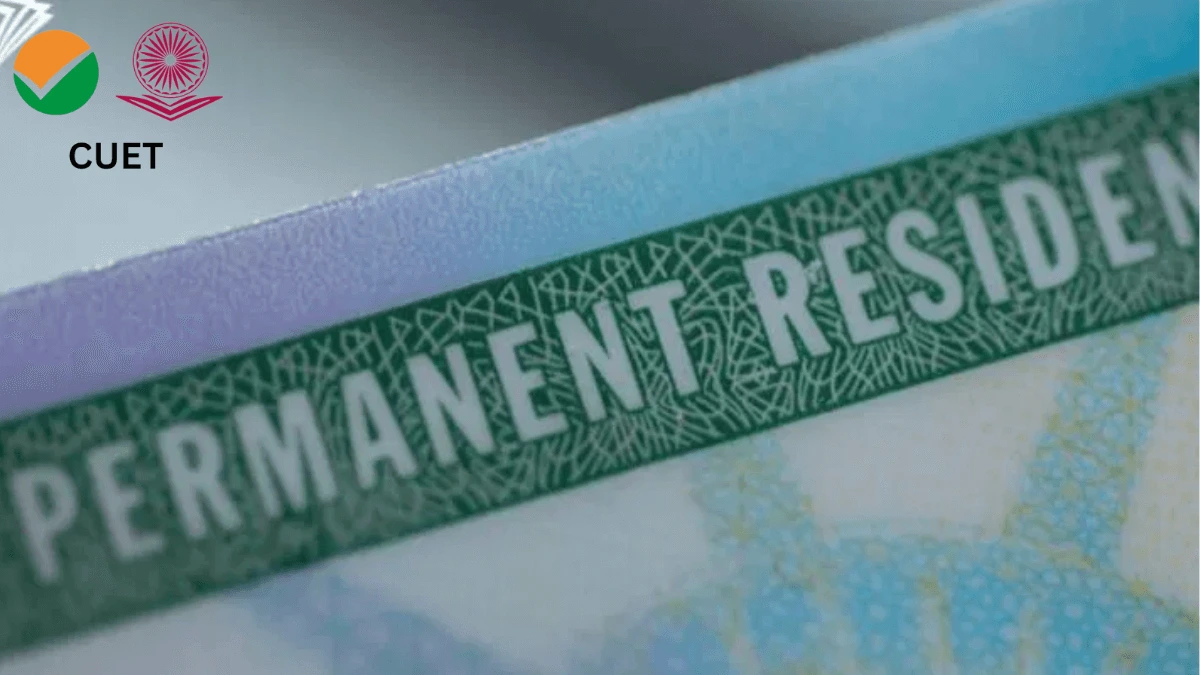The Common University Entrance Test (CUET) exam offers admission to more than 180 universities located in different parts of India. While students from one area of state/UT can take admission into universities or colleges located in other state, some seats are reserved for candidates from the same state/UT. This is where the concept of Domicile state in CUET comes into picture. To better understand What is Domicile State in CUET entrance exam, go through this informative post.
Domicile State in CUET
Within the sphere of educational admissions, the idea of domicile state holds significant importance, especially regarding the entrance exams like CUET, NEET, JEE, etc. Check the meaning of Domicile state in CUET below.
Domicile state typically denotes the state in which a candidate has their permanent home or where they have resided for a considerable part of their life, often for educational reasons. It’s fundamentally their legal residence, and it’s where they are regarded as a resident for legal and administrative reasons.
What is Domicile State in CUET Entrance Exam
This idea of Domicile state is important as numerous universities and colleges involved in the CUET exam allocate a specific number of seats for candidates residing in the state where the institution is situated. Identifying a candidate’s state of residence usually requires assessing multiple elements, such as:
- Permanent Residence Location: The candidate’s permanent residence, typically associated with their parents’ or guardians’ home, is an important factor.
- Place of Education: The state in which a candidate has finished their education, especially their high school education, is also taken into account.
- Parental Employment: If a candidate’s parents work in a specific state, that state may be regarded as their domicile state.
Significance of Domicile State in CUET 2026
The factor of domicile state in CUET admissions arises from the idea of fair access to higher education. By setting aside seats for local candidates, universities seek to guarantee that residents have a just chance to access higher education options within their own state. This approach aids in closing regional gaps in education and fosters the growth of human capital in every state. The Domicile state should be provided during CUET counselling process.
Reservation for Domicile State in CUET
Universities frequently allocate a percentage of their seats for applicants who reside in the same state as the institution. There is no fixed number of reservation percentage mandated by the government, so the reservation criteria vary from one university to another. In fact in some universities like DU (University of Delhi), there is no domicile state reservation.
However, many universities, especially in South India and North East, the university reserves some seats for local candidates. This initiative seeks to provide local students with access to higher education options in their home state. The proportion of seats set aside for local candidates may differ based on the university and the particular course or program.
Impact of Domicile State in CUET Admissions
For applicants looking to gain admission to universities via the CUET, their home state can greatly influence their likelihood of being accepted. This is especially significant for state universities or colleges that have adopted domicile-based reservation policies. In these instances, candidates who have domicile status in the state of the university may have a greater chance of being admitted than those without domicile status.
How the Criteria of Domicile State will Influence the CUET 2026 Exam
A candidate’s home state can significantly influence their chances of being admitted, especially in public universities or colleges with reservation policies based on domicile. Here’s a more detailed examination of how this system typically functions:
- Definition of Domicile: The domicile state is determined by factors including the place of a candidate’s permanent residence, educational institution, or where their parents are employed.
- Effect on Admission: The state of residence can considerably affect an applicant’s likelihood of being admitted, especially in institutions where residency-based quotas are common.
- Proof of Domicile: Applicants typically need to verify their domicile status through documents such as school records, proof of residence, or other official government-issued papers.
- Differences by University: The standards and effects of domicile status are inconsistent and may differ considerably between universities. Consequently, applicants need to verify the particular guidelines of every institution they submit their applications to.
- Seat Reservation: In order to provide local students with educational opportunities in their home state, universities frequently set aside a number of seats for those with residency in that state.
Domicile State in CUET Variations Observed in Policies
It is important to recognize that the specific CUET eligibility requirements and influence of domicile status differ between universities. Applicants must thoroughly examine the individual rules and regulations of every institution to which they are applying, since domicile policies may vary considerably.
For applicants thinking about applying for these domicile-based advantages, it is essential to carefully examine the unique eligibility standards and documentation needs of each university. Furthermore, acquiring a domicile certificate from the appropriate state government may be required.
- State Quota Admissions: Numerous institutions allocate a specific percentage of seats exclusively for applicants from their respective states or union territories. This policy guarantees that local students can access educational opportunities within their own states. As a result, candidates residing in the relevant state may have an edge in obtaining these reserved seats.
- Fee Reductions and Grants: Certain universities offer financial assistance, like fee reductions or grants, solely to applicants originating from their respective home states. This initiative seeks to encourage local students to pursue higher education by reducing its cost.
- Hostel Allocation Preferences: In specific cases, universities prioritize hostel assignments for students from their home states, allowing local students easier access to campus facilities.
- Strategic Insights for CUET Applicants: It is crucial for students participating in the CUET to comprehend the domicile regulations of the universities they wish to apply to. This information can guide their college application approach and assist them in focusing on schools where their residency status offers a benefit.
In conclusion, understanding the importance of a domicile state within the realm of CUET is vital for candidates. It influences not just the eligibility for specific benefits but also is crucial in the admissions process, especially for universities that have state-affiliated reservation policies.












 CUET General Test Syllabus 2026 (Latest)...
CUET General Test Syllabus 2026 (Latest)...
 CUET Chemistry Syllabus 2026, Download O...
CUET Chemistry Syllabus 2026, Download O...
 CUET Computer Science Syllabus 2026, Dow...
CUET Computer Science Syllabus 2026, Dow...









